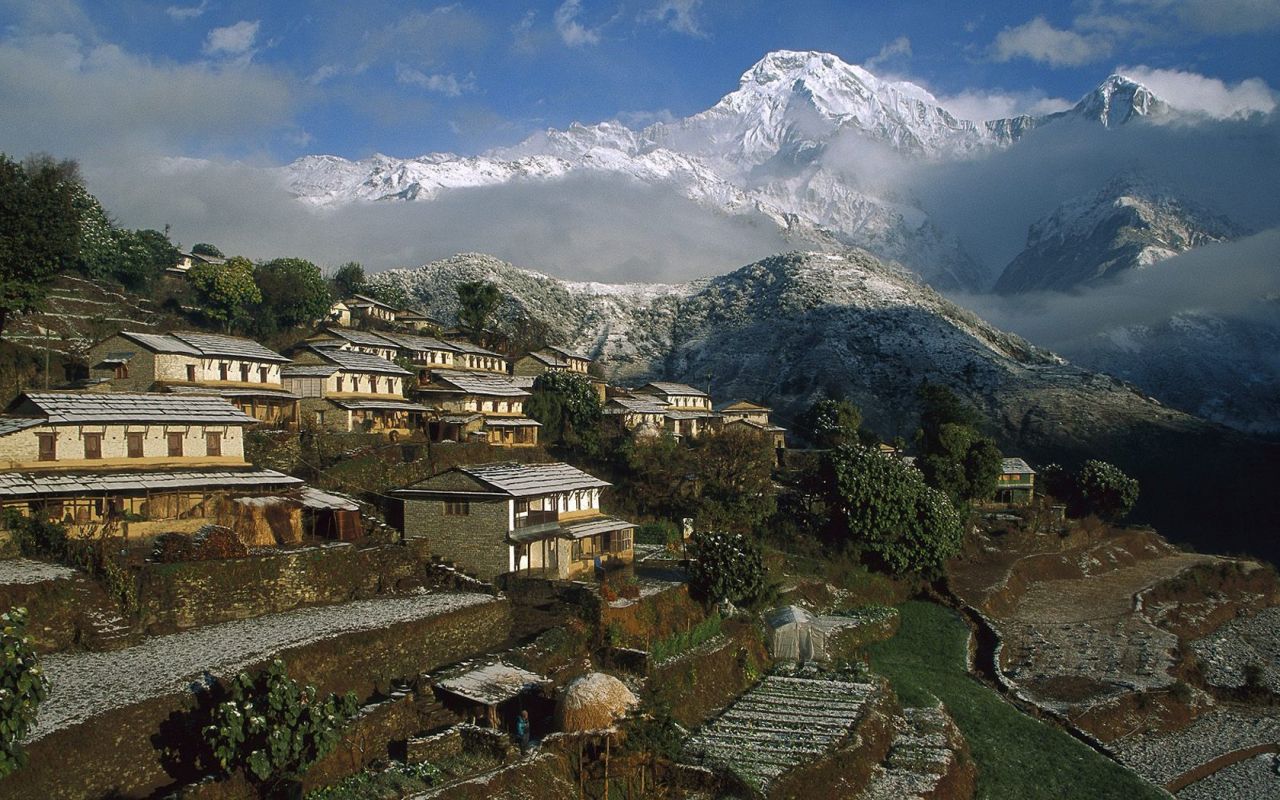By Buddhi Sharma, General Secretary and Chief Researcher, Nepal-China Dialogue and Development Forum (NCDF), based in Kathmandu, Nepal
The Prime Minister of Nepal Pushpa Kamal Dahal's recent visit to China has given an important signal to boost bilateral ties with China in a new framework and dimensions. Dahal arrived in China to participate in the Boao forum for Asia.
Afterwards, he visited Beijing to meet Chinese President Xi Jinping. They discussed Nepal-China pragmatic cooperation and how to coordinate on the Belt & Road Initiative.
Dahal told the Chinese media the meeting with Xi was fruitful and the Belt and Road could enhance Nepal's economic development.
Many Nepalese blamed the Dahal-led government for not implementing prior agreements with Beijing that were signed by the former KP Sharma Oli government.
The Oli government last year endorsed historical ten points agreements with the People's Republic of China (PRC) regarding trade, transportation, petroleum products, energy, investment, cross-border connectivity etc.
They were milestone agreements to hedge the India's influence on Nepal's affairs, so they faced a blockade from the India side. Accordingly, due to a no confidence vote in parliament against the Oli government, this led Dahal to become the new prime minister.
Consequently, the Dahal government has been labeled as pro-India and anti-China by the previous Oli government. So in his visit to China, Dahal tried to win back the trust of China’s government and to demonstrate his commitment to implementing agreements.
Belt & Road: What Nepal could gain?
Since Xi introduced the B&R in 2013, Beijing has given positive signals to developing markets for win-win benefits on economic, cultural and technological cooperation.
Although Nepal is not associated with it as a periphery country, there are huge possibilities. Beijing has also given immense importance to Belt and Road cooperation with Nepal. Nepal can serve as an important geographic location.
Due to its geo-political and geo-economic situation, Nepal can become a golden bridge between China and South Asia. Some experts believe Nepal can be a "linked up" country between China and South Asia.
Nepal is one of the oldest countries in the world with more than five thousand years of golden civilization, but in the past fifty years it has endured political instabilities. The last two decades have been notorious decades for Nepal's political and economic development.

Last year the Oli government, which was popular due to its political and economic agendas, had taken a historical trip to China and signed ten points agreements related with investment, connectivity, petroleum products, energy cooperation etc, which raised hope for the Nepalese.
The people of Nepal believe cooperation with China remains essential for Nepal's economic development.
What Nepal should do?
Nepal-China relation since Oli government's trip of China last year has been moving in a new positive direction. Yet, the present government is less serious on implementing agreements with China.
Now Dahal has sought to win over the trust of Beijing on concrete implementation of agreements.
Talking with Nepali and Chinese journalists in a program held at the Embassy of Nepal in Beijing, Dahal said his government is working to finalize an MOU (memorandum of understanding) on the B&R.
Nepal should focus on implementing agreements. China, which is the second largest economy of the world and the biggest exporter, has capital, technologies, knowledge and experiences. Nepal-China relations can move in harmonious ways.
Nepal stands committed to the One China Policy. China supports Nepal's development. Now Nepal needs to do much more from its side.
For its economic development, it needs to support Chinese investors. Nepal has delayed implementation, so the country cannot enjoy tangible change in economic development.
As a leader of globalization, Beijing has assumed greater prominence in the international community. There are no places where China is not present. Mostly in issues of least developed countries (LDCs), China can be more supportive.
LDCs have natural resources and manpower but lack capital, knowledge and technologies. China as a liberal partner should support them based on mutual coexistence and trust.
As many experts on Nepal-China affairs opined that Beijing should recognize the geo-location of Nepal, while Nepal should be more serious on implementing agreements and addressing China's concerns.

Buddhi Sharma, General Secretary and Chief Researcher, Nepal-China Dialogue and Development Forum (NCDF), based in Kathmandu, Nepal
(The opinions expressed here do not necessarily reflect the opinions of Panview or CCTV.com)

Panview offers a new window of understanding the world as well as China through the views, opinions, and analysis of experts. We also welcome outside submissions, so feel free to send in your own editorials to "globalopinion@vip.cntv.cn" for consideration.















